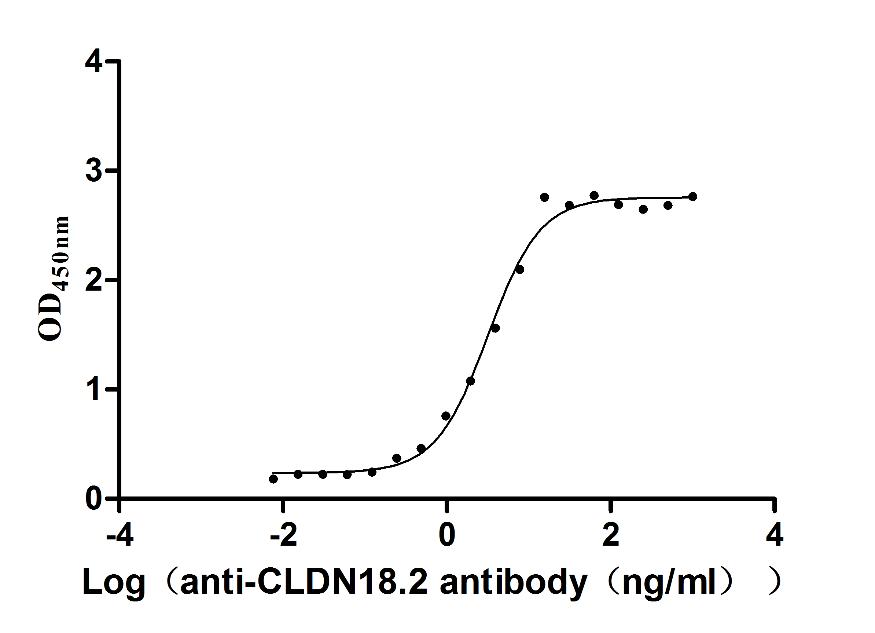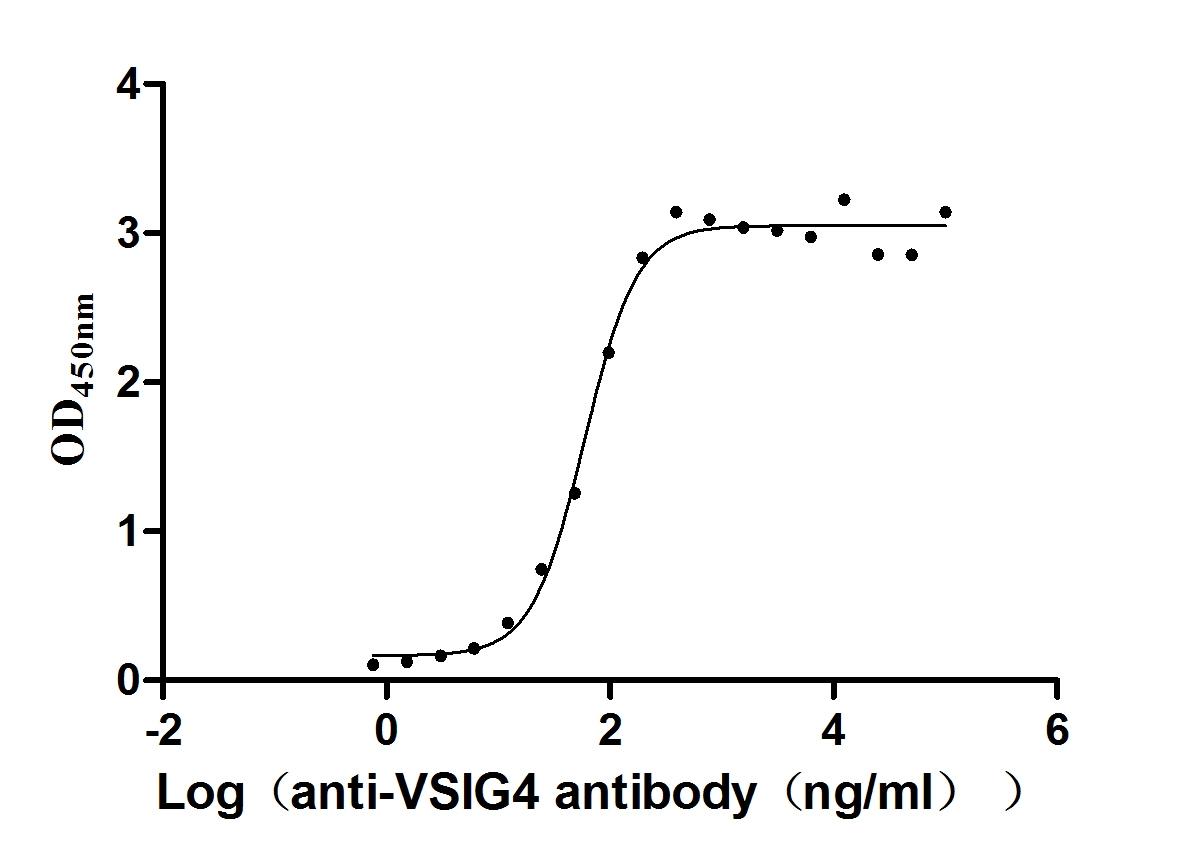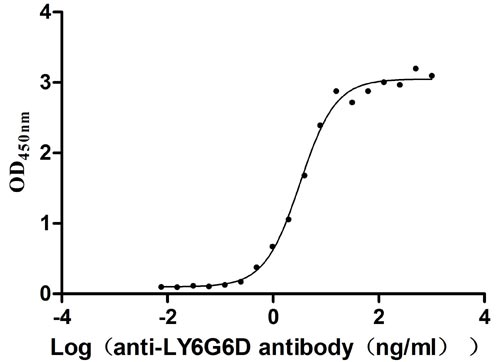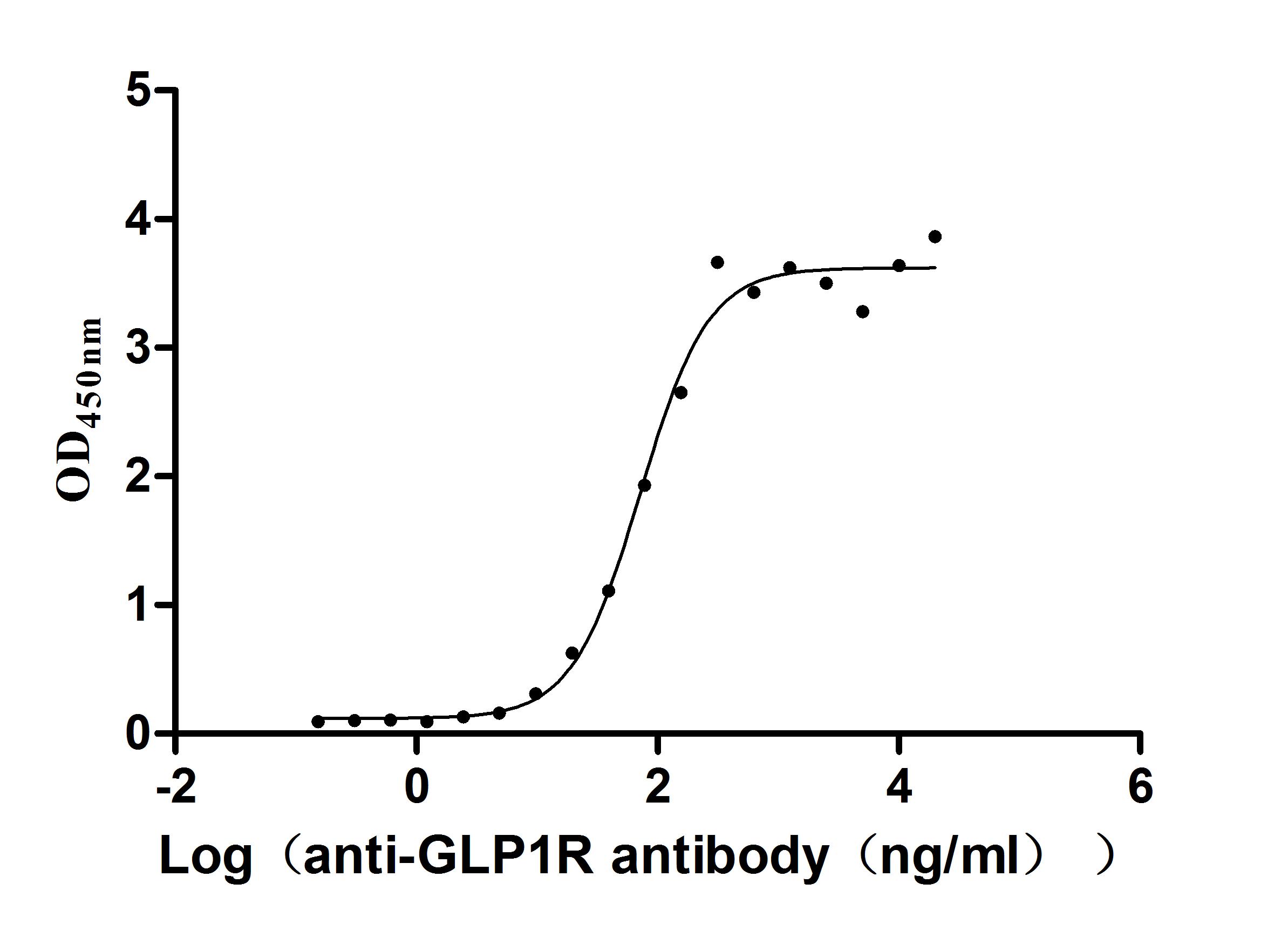Recombinant Rat Elongation factor 2 (Eef2), partial
-
中文名称:大鼠Eef2重组蛋白
-
货号:CSB-YP007434RA
-
规格:
-
来源:Yeast
-
其他:
-
中文名称:大鼠Eef2重组蛋白
-
货号:CSB-EP007434RA
-
规格:
-
来源:E.coli
-
其他:
-
中文名称:大鼠Eef2重组蛋白
-
货号:CSB-EP007434RA-B
-
规格:
-
来源:E.coli
-
共轭:Avi-tag Biotinylated
E. coli biotin ligase (BirA) is highly specific in covalently attaching biotin to the 15 amino acid AviTag peptide. This recombinant protein was biotinylated in vivo by AviTag-BirA technology, which method is BriA catalyzes amide linkage between the biotin and the specific lysine of the AviTag.
-
其他:
-
中文名称:大鼠Eef2重组蛋白
-
货号:CSB-BP007434RA
-
规格:
-
来源:Baculovirus
-
其他:
-
中文名称:大鼠Eef2重组蛋白
-
货号:CSB-MP007434RA
-
规格:
-
来源:Mammalian cell
-
其他:
产品详情
-
纯度:>85% (SDS-PAGE)
-
基因名:
-
Uniprot No.:
-
别名:Eef2Elongation factor 2; EF-2
-
种属:Rattus norvegicus (Rat)
-
蛋白长度:Partial
-
蛋白标签:Tag type will be determined during the manufacturing process.
The tag type will be determined during production process. If you have specified tag type, please tell us and we will develop the specified tag preferentially. -
产品提供形式:Lyophilized powder
Note: We will preferentially ship the format that we have in stock, however, if you have any special requirement for the format, please remark your requirement when placing the order, we will prepare according to your demand. -
复溶:We recommend that this vial be briefly centrifuged prior to opening to bring the contents to the bottom. Please reconstitute protein in deionized sterile water to a concentration of 0.1-1.0 mg/mL.We recommend to add 5-50% of glycerol (final concentration) and aliquot for long-term storage at -20℃/-80℃. Our default final concentration of glycerol is 50%. Customers could use it as reference.
-
储存条件:Store at -20°C/-80°C upon receipt, aliquoting is necessary for mutiple use. Avoid repeated freeze-thaw cycles.
-
保质期:The shelf life is related to many factors, storage state, buffer ingredients, storage temperature and the stability of the protein itself.
Generally, the shelf life of liquid form is 6 months at -20°C/-80°C. The shelf life of lyophilized form is 12 months at -20°C/-80°C. -
货期:Delivery time may differ from different purchasing way or location, please kindly consult your local distributors for specific delivery time.Note: All of our proteins are default shipped with normal blue ice packs, if you request to ship with dry ice, please communicate with us in advance and extra fees will be charged.
-
注意事项:Repeated freezing and thawing is not recommended. Store working aliquots at 4°C for up to one week.
-
Datasheet :Please contact us to get it.
靶点详情
-
功能:Catalyzes the GTP-dependent ribosomal translocation step during translation elongation. During this step, the ribosome changes from the pre-translocational (PRE) to the post-translocational (POST) state as the newly formed A-site-bound peptidyl-tRNA and P-site-bound deacylated tRNA move to the P and E sites, respectively. Catalyzes the coordinated movement of the two tRNA molecules, the mRNA and conformational changes in the ribosome.
-
基因功能参考文献:
- The results suggest that one of the possible mechanisms underlying pineal gland dysfunction during aging is the effect of lipid peroxidation on eEF-2, which is a key component of protein synthesis machinery. PMID: 27292877
- Eukaryotic elongation factor 2 kinase activation in M. soleus under 14-day hindlimb unloading of rats PMID: 28726101
- Translational inhibition by CORM-2 is a result of eEF2 phosphorylation due to inhibition of PI3K-Akt-mTOR signaling. PMID: 23041477
- melatonin prevented the molecular changes in eEF-2 and the decline in protein synthesis rate secondary to lipid peroxidation. PMID: 22462727
- oxidative stress could be involved in the alterations of eEF-2, which forms adducts with malondialdehyde and 4-hydroxynonenal in the aging hypothalamo-hypophyseal system PMID: 21172375
- Report interleukin-1beta as the first known activator of endogenous ADP-ribosylation of eEF-2. PMID: 21088871
- results show a causal link between synaptic activity and dendritic spine morphology in rat hippocampal neurons; propose that the eEF2K/eEF2 pathway is a key biochemical sensor that couple neuronal activity to spine plasticity PMID: 20427644
- These results indicate that eEF2 behaves differently from prokaryotic EF-G in binding to ribosomal RNA. PMID: 11849993
- effects of ATP depletion on the phosphorylation of eEF2 in adult rat ventricular cardiomyocytes PMID: 12435591
- phosphorylation/dephosphorylation of EF-2 is regulated by glucose by a protein phosphatase-2A-dependent mechanism in rat cells PMID: 12644453
- association of p53 with eEF2 and 5.8S rRNA, and the effect of p53 on sensitivity to the translocation inhibitor, Cx, as well as the known molecular interactions of these components in the ribosome suggest involvement of p53 in elongation PMID: 12891704
- increasing workload resulted in dephosphorylation of eEF2, which was rapamycin-insensitive, while eEF2K activity was unchanged, suggesting that the decrease in eEF2 phosphorylation could result from the activation of an eEF2 phosphatase PMID: 12920134
- Translation elongation in pancreatic acinar cells is likely regulated by eEF2 through the mTOR, p38, and MEK pathways, and modulated through PP2A PMID: 15158453
- eEF2 was dephosphorylated after transient cerebral ischemia in rats with and without ischemic tolerance or H2O2-treated cells; however, protein synthesis was significantly inhibited under these three conditions. PMID: 15211596
- These results suggest that the regulation of L6 myoblast differentiation by PI3-kinase is related to eEF2 phosphorylation. PMID: 16682826
- EF-2 fragment was a possible candidate for the protein responsible for the radiation adaptive response in cultured astrocytes. PMID: 17522089
- results attest to the presence of ADP-ribosylation site on 32F at the C-terminal half of eEF-2 PMID: 17665640
- AMPK activation attenuates eEF2 response to high-frequency electrically stimulated skeletal muscle contractions. PMID: 18187610
显示更多
收起更多
-
亚细胞定位:Cytoplasm. Nucleus.
-
蛋白家族:TRAFAC class translation factor GTPase superfamily, Classic translation factor GTPase family, EF-G/EF-2 subfamily
-
数据库链接:
Most popular with customers
-
Recombinant Human Tumor necrosis factor receptor superfamily member 8 (TNFRSF8), partial (Active)
Express system: Mammalian cell
Species: Homo sapiens (Human)
-
Recombinant Human Tumor necrosis factor ligand superfamily member 9 (TNFSF9), partial (Active)
Express system: Mammalian cell
Species: Homo sapiens (Human)
-
Recombinant Human C-X-C chemokine receptor type 4 (CXCR4)-VLPs (Active)
Express system: Mammalian cell
Species: Homo sapiens (Human)
-
Recombinant Human Intestinal-type alkaline phosphatase (ALPI) (Active)
Express system: Mammalian cell
Species: Homo sapiens (Human)
-
Recombinant Macaca fascicularis Claudin 18.2 (CLDN18.2)-VLPs (Active)
Express system: Mammalian cell
Species: Macaca fascicularis (Crab-eating macaque) (Cynomolgus monkey)
-
Recombinant Human V-set and immunoglobulin domain-containing protein 4 (VSIG4), partial (Active)
Express system: Mammalian cell
Species: Homo sapiens (Human)
-
Recombinant Human Lymphocyte antigen 6 complex locus protein G6d (LY6G6D) (Active)
Express system: Yeast
Species: Homo sapiens (Human)
-
Recombinant Human Glucagon-like peptide 1 receptor (GLP1R), partial (Active)
Express system: Mammalian cell
Species: Homo sapiens (Human)


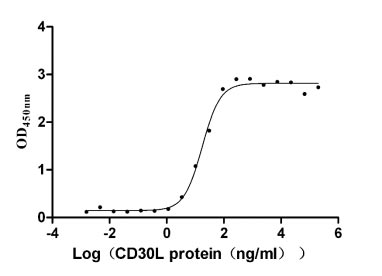

-AC1.jpg)

